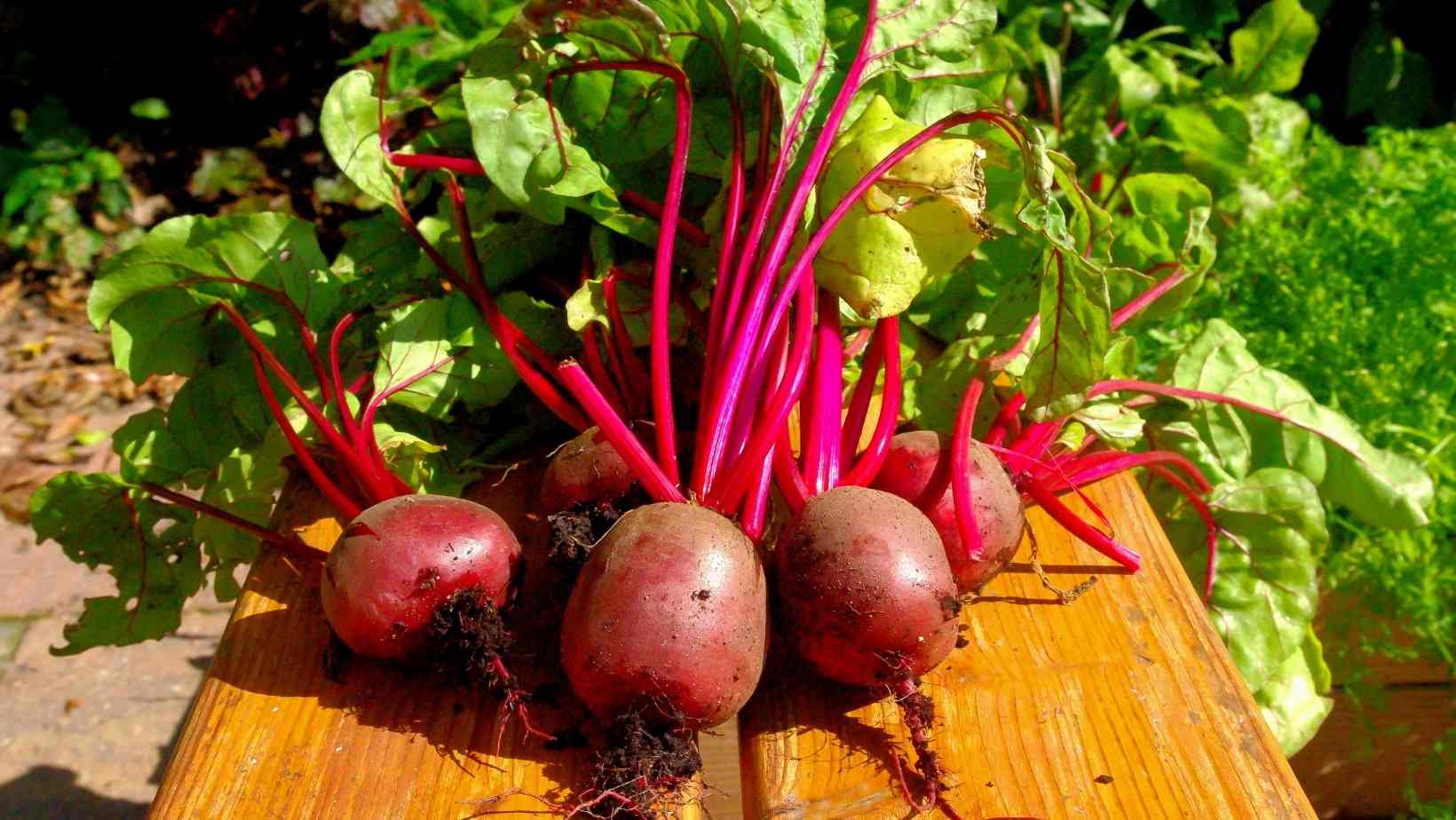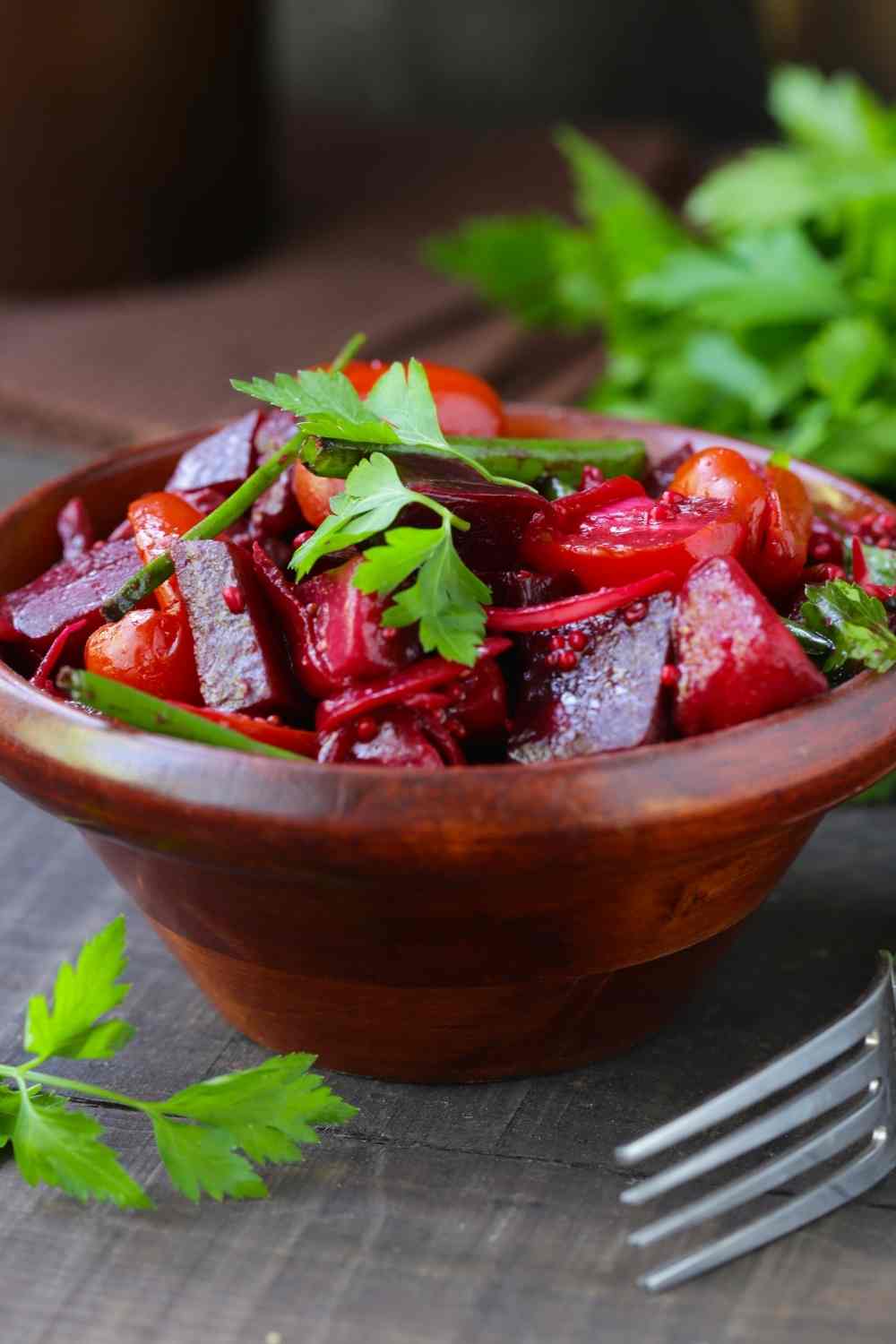Beets can not only light up your dinner plate, but they may also help you enhance your health. Beets may be an acquired taste due to their earthy flavour, which some characterise as "dirty." If you're "team beet," though, you'll reap the advantages of beets' many health benefits, albeit they do come with a few drawbacks.

Jump to:
1. Beets' Nutrients
Beets (also known as beetroot) are most typically cultivated in brilliant red or purple colours, although other types are yellow or have red and white stripes on the interior. The vivid hues are caused by pigments called betalains, and they're a sign that this root vegetable is high in phytonutrients. Beets are high in vitamins, minerals, and fibre, as well as disease-fighting phytochemicals.
3 grammes of protein, 17 grammes of carbohydrates, and 3.4 grammes of fibre are all included in one cup of cooked beets. They're particularly high in folate, as well as copper, manganese, and potassium. Beet greens are also edible and high in antioxidant vitamins C and beta carotene, as well as vitamin K, which is important for blood clotting.
The betalains in beets provide the most nutritional benefit. Within the betalain family, beetroot includes a wide range of antioxidant chemicals, each of which contributes to the health advantages of beets. Betanin and betanidin are two of the most potent betalain compounds.
2. Beets Have a Lot of Health Benefits
Many people believe beetroot to be a functional food, which means it has the power to improve health and prevent illness. Beets have been shown to lower the risk of inflammatory disorders including heart disease and cancer. The journal Nutrients conducted a study of the potential benefits of beetroot and beet juice supplements, which revealed evidence that the betalains in beetroot juice may decrease inflammation in the body and protect DNA from oxidative damage. Beet phytochemicals also aid in the maintenance of healthy and flexible blood vessels.
Beets contain nitrate, which is converted to nitric oxide in the body, in addition to antioxidant chemicals. Nitric oxide improves blood flow in the brain and throughout the body. Eating beets or drinking beet juice is known to help maintain brain health and cognitive performance as you age.
Beets' potential to lower blood pressure is perhaps the most well-studied health benefit. Many individuals use beet juice as a supplement to their hypertension treatment. Researchers looked at the effects of beetroot on blood pressure in a meta-analysis published in the journal Advances in Nutrition. Beets' blood-pressure-lowering advantages originate from their nitrates, as well as other health-promoting phytochemicals that operate independently of the nitrates.
3. The Consequences of Eating Beets
For the most part, adding more beets to your diet is healthful and safe, with benefits such as decreased blood pressure and antioxidant protection. Although it's uncommon for beets to have any negative side effects, some individuals are allergic to them. A beet allergy, like other fruit and vegetable allergies, is often caused by food pollen allergy syndrome. Pollens in fruits and vegetables are similar to pollens that cause hay fever, thus this is generally a moderate response.

The lips, tongue, and throat may become red, swollen, or itchy as a result of a beet allergy. Most people's symptoms are minor and go away quickly, but some individuals may have a more severe response, leading to anaphylaxis.
Beeturia is a curious and sometimes terrifying side effect of eating beets. According to Medical News Today, the dark red pigments in beets may cause urine to become crimson or pink in 10 to 14 percent of individuals. A day or two after consuming them, your faeces may become a dark red-black hue. You may be concerned if you have blood in your stool if you haven't eaten beets, but these situations aren't hazardous or permanent.
4. Caution With Kidney Stones
If you're on a low-oxalate diet, avoid beets since they're rich in oxalic acid. Eating foods rich in oxalates may induce kidney stones in certain individuals, particularly if consumed in excessive quantities.
5. Supplementing with Beets
While eating entire beets is beneficial, many individuals choose to take beet supplements to get the same advantages. Beetroot powder is the most common type of beet supplement. Instead of eating beets, you may combine this with water or another fruit or vegetable juice to obtain a decent dosage of antioxidants, nitrates, and other active chemicals. Beetroot powder is available at certain grocery shops and most health food stores. Most supermarket shops sell beet juice in a ready-to-drink form.
Beet supplements are often used by athletes and individuals who engage in high-intensity activities such as running, sprinting, swimming, or bicycling to decrease blood pressure. Beets include nitrates, which aid to relax blood vessels, induce vasodilation, and enhance oxygen flow, which may help with endurance.
120 trained athletes and weekend warriors were studied in a study published in the Journal of the International Society of Sports Nutrition. Supplementing with beetroot juice improved performance during high-intensity exercises significantly, according to the findings. The supplement drink also increased muscular power and decreased muscle tiredness from strenuous activities.
6. Getting the Most Out of Your Beets
It's crucial to attempt to maintain the nutrients in beets if you want to gain the maximum health advantages from them. When buying beets, look for fresh, sturdy beets that aren't limp, damaged, or shrivelled. They may be stored in the refrigerator, but they should be used within three weeks. Make sure you wait until you're ready to consume them before washing them.
Beets may be eaten raw or cooked, but don't overcook them since the betalains will break down when exposed to heat. Cut them into little pieces and steam them for around 15 minutes instead.
Refrigerate the prepared juice according to the manufacturer's recommendations if you like to drink your beets. To keep beetroot powder fresh and avoid clumping, store it in a cold, dry place.




